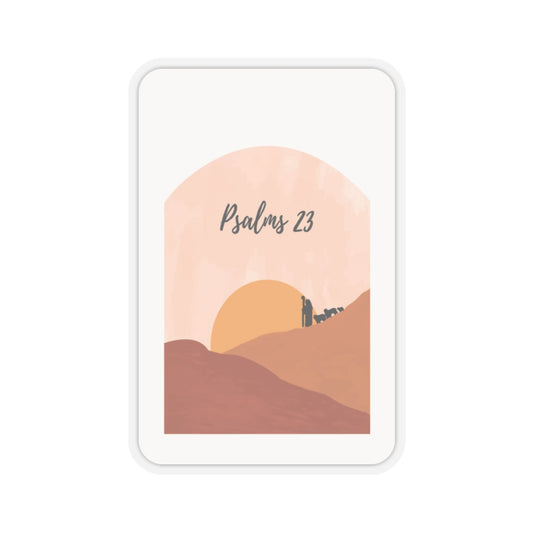The Lord, Our Shepherd
Undoubtedly, Psalm 23 ranks among the most well-known and beloved passages in the Psalter and, indeed, the entire Bible. This is not surprising given the comforting way in which it depicts the care of the Lord for His children. borrowing imagery from the ancient Near eastern vocation of the shepherd, this Psalm encourages confidence in our Creator. Shepherds were such a common sight in the ancient Near east that even the Gentile nations of the region used shepherding imagery to depict the guidance and protection their kings provided. The Israelites even spoke of their leaders as "shepherds" (2 Sam. 5:2; ezek. 34:23). However, passages such as Psalm 23 reveal that as important as such shepherds were for the care of God's people, they were no more than undershepherds who served the Chief Shepherd, the Lord Himself. This remains true under the new covenant (1 Peter 5:1–4). Psalm 23 opens with a revelation of God’s abundant provision for His people. Verses 1—3 emphasize the comprehensiveness of our Father’s care, encompassing both physical and spiritual needs. For those who love Him, God grants rest for body and soul, something David knew quite well because he was forced to rely on the Lord’s care alone while fleeing from Saul and absalom (1 Sam. 21:1–9; 2 Sam. 17). This, of course, was in addition to the abundance David knew as Israel’s king. Yet even those who never rise to such a high position and lifestyle can testify to God’s care. John Calvin comments, "all men, it is true, are not treated with the same [generosity] with which David was treated; but there is not an individual who is not under obligation to God by the benefits which God has conferred upon him, so that we are constrained to acknowledge that He is a kind and [generous] Father to all his people."
David closes the psalm with the hope of his vindication before all, including his enemies, for he looks forward to the day when they will see him feasting in God’s presence (Ps. 23:5–6). Just before this, however, he gives us a marvelous picture of the Lord’s protection and guidance with his reference to the divine rod and staff (v. 4). In the ancient world, shepherds carried a rod to club predators and drive them away, and a staff to guide their sheep, to keep them in line lest they go astray. Such guidance could be painful to the sheep at times as they were poked and prodded to be kept on the straight and narrow. likewise, the discipline of the Lord can seem uncomfortable, but it is a comfort to us because, as augustine writes, it shows that God is mindful of us.
In Psalm 8, David asks the Lord why He is so mindful of human beings, creatures who can seem so insignificant in comparison to the grandeur of the rest of creation. We should never fail to marvel that the self-existent and eternal Creator takes interest in us. He does so for the sake of His own name, for He has made us in His image. bearing this image is a distinct privilege and also a sober responsibility, so let us be thankful that God does pay attention to us and serve Him with gladness.


